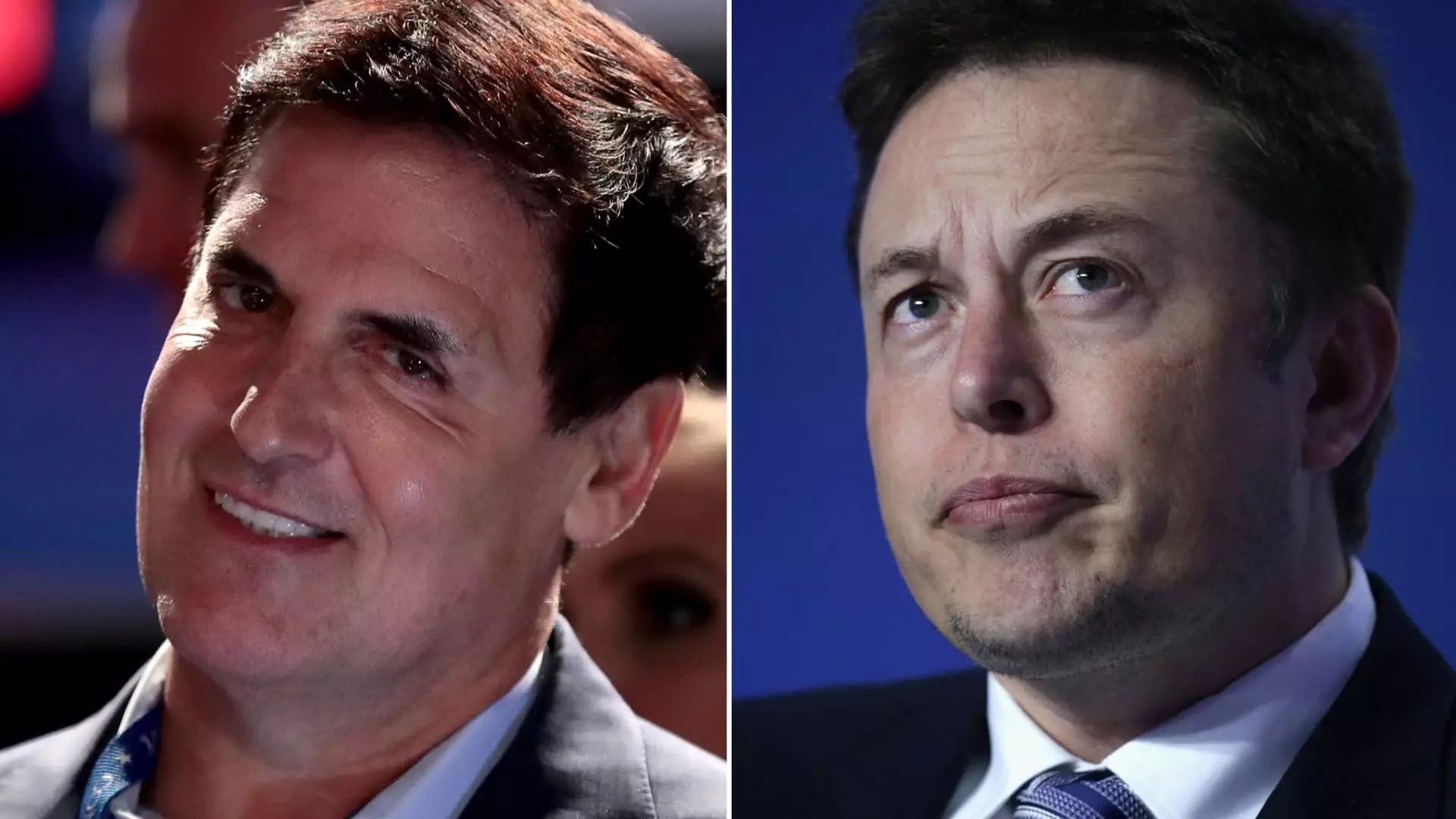In contemporary politics, the relationship between wealth and political influence has become increasingly intertwined. Billionaire investor Mark Cuban recently highlighted this precarious intersection when he cautioned fellow billionaire Elon Musk about forming an alliance with the controversial figure of Donald Trump. Cuban’s warning is not simply limited to a personal advisory to Musk; it encapsulates a broader narrative about the risks billionaires face when they choose to align themselves with populist political figures. Cuban’s insights reflect an understanding of the fickle nature of loyalty in the political arena, particularly when individuals seek to gain favor from those in power.
Cuban took to social media platform X to articulate his concerns, suggesting that Musk’s loyalty towards Trump might not yield the reciprocal loyalty he might expect when the time comes. This resonates with the experiences of many who have navigated the politically charged waters of teamwork and alliances. Cuban’s thoughts suggest that even among powerful elites, the principle of reciprocity is often a one-way street, especially concerning Trump, who has a reputation for valuing personal ambition over loyalty.
Elon Musk’s recent endorsement of Trump represents a significant shift in his political stance. Just a year prior, Musk had publicly criticized Trump, signaling a clear divergence from the former president’s policies. This turnaround raises questions about the motivations behind Musk’s newfound support. Is he genuinely aligning with Trump’s vision, or is he strategically positioning himself to secure political advantages, especially as he contemplates further governmental roles?
Musk’s statement—an assertion that if Trump doesn’t win, this could be “the last election”—points to a blend of alarmism and ambition that characterizes much of his public discourse. This rhetoric amplifies conspiracy theories that assert an ongoing manipulation of political dynamics by Democrats, specifically about immigration and electoral strategies. Here, the intertwining of conspiracy and political endorsement reflects a strategic gamble by Musk, which could yield significant, albeit risky, consequences as he maneuvers through these turbulent political times.
While Cuban positions himself as a supporter of Vice President Kamala Harris and her economic policies, Musk appears to be aligning with Trump’s vision. This dichotomy marks a fascinating moment in American politics where two prominent billionaires seek to exert influence from opposing sides of the political spectrum. Cuban’s outward support for Harris is emblematic of a growing faction within the business community that increasingly favors a regulatory approach and a more equitable economic agenda.
Cuban does not shy away from discussing his ambitions, openly expressing interest in a position at the Securities and Exchange Commission (SEC). His proactive approach suggests a desire to enact change from within the system as he criticizes the existing regulatory framework. This contrasts starkly with Musk’s ambition outlined through discussions of creating a government efficiency commission, which, if accomplished, could place Musk in a position to dictate terms for federal spending.
The evolving narratives surrounding both Musk and Cuban highlight the risks inherent in political engagement for the wealthy. Cuban’s cautionary advice to Musk extends beyond a personal warning; it serves as a reminder of history where political alliances have often backfired for those who believed their influence assured them safety. Trump’s history of dismissive behavior towards allies raises a legitimate concern for new supporters like Musk. In navigating these treacherous waters, Musk faces the risk of overestimating his leverage, an all-too-common misjudgment for those who engage in contradiction-driven political gambits.
The interplay between wealth, influence, and political allegiance describes a complex landscape for those like Cuban and Musk. Cuban’s perspective unveils the hidden complexities of loyalty amidst political ambition. The road ahead for both billionaires represents not just a personal journey but an overarching narrative reflective of modernization and the power dynamics shaping contemporary political landscapes. As Tesla and SpaceX continue to evolve, Musk’s relationship with Trump may serve as a defining element of his legacy unless historical lessons illuminate the way forward.


Leave a Reply